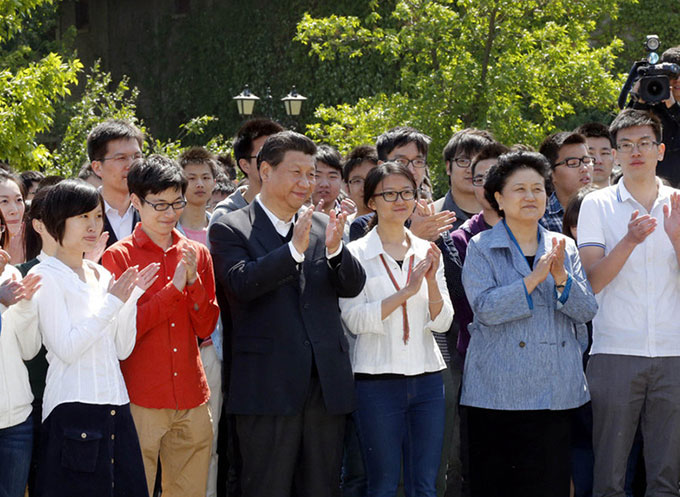Beijing's winter smog to arrive earlier this year
BEIJING -?Beijing's smog is expected to arrive earlier this year, said China's Ministry of Environmental Protection.
The smog, which often occurs in late autumn and winter, has already returned to the capital city in early September. Air quality started to worsen Saturday morning, with PM2.5 density reaching 176 micrograms per cubic meter of air, indicating heavy air pollution, according to data from the Beijing Municipal Environmental Protection Monitoring Center.
The smog will persist until Tuesday, when rain and a northerly wind are forecast to hit the city.
The new round of air pollution is a result of unfavorable air conditions and high local vehicle emissions, the Beijing Municipal Environmental Protection Bureau explained.
Nitrate has been confirmed as a main pollutant, accounting for 30 percent of PM 2.5 as of Monday noon.
"Our monitor shows the concentration of nitrogen oxide, which can turn into nitrate, at night is two to four times that of the day, indicating diesel trucks only allowed to enter Beijing at night are the main culprits," said Liu Baoxian, senior engineer at the monitoring center.
Beijing's 5.8 million vehicles produce more than 10 tons of nitrogen oxide and hydrocarbon compounds annually. Heavy-duty diesel vehicles only account for 4 percent of the total vehicles in the capital, but discharge half of the nitrogen oxide, and 90 percent of particulate matter of car exhaust.
The case is even worse if non-local heavy-polluting diesel trucks are counted.
The Beijing Municipal Environmental Protection Bureau has therefore partnered with 13 departments to improve supervision of heavy-duty vehicles. As of August, more than 12,000 vehicles had been fined for excessive discharge on the road.
"Beijing is introducing a smart monitoring system that can capture high-emission vehicles in real time," said Su Xuetian, from the city's environmental protection bureau.
According to the MEP statement Sunday night, the possible earlier smog is forecast based on the melting of Arctic sea ice and the temperature variation of the Pacific Ocean.
It also said a weaker Siberian High was expected to bring fewer cold fronts in the following months, resulting in a more humid, warmer winter, which also means earlier heavy air pollution.
The MEP said that it would launch a campaign against heavy air pollution in autumn and winter.
In the plan, the country should improve its forecast calculation capacity to extend the forecast period from seven to 10 days, and emergency response plans should be improved in 28 cities in northern and central China to ensure the effectiveness of measures to cut emissions.
MEP will also set up a Beijing-Tianjin-Hebei air environment management agency to help deal with heavy pollution in autumn and winter.
Density of PM2.5 nationwide dropped 6.9 percent year on year in July, while Beijing reported an average PM2.5 density of 64 micrograms per cubic meter in the first seven months of 2017, down 34.7 percent from the same period in 2013.


























